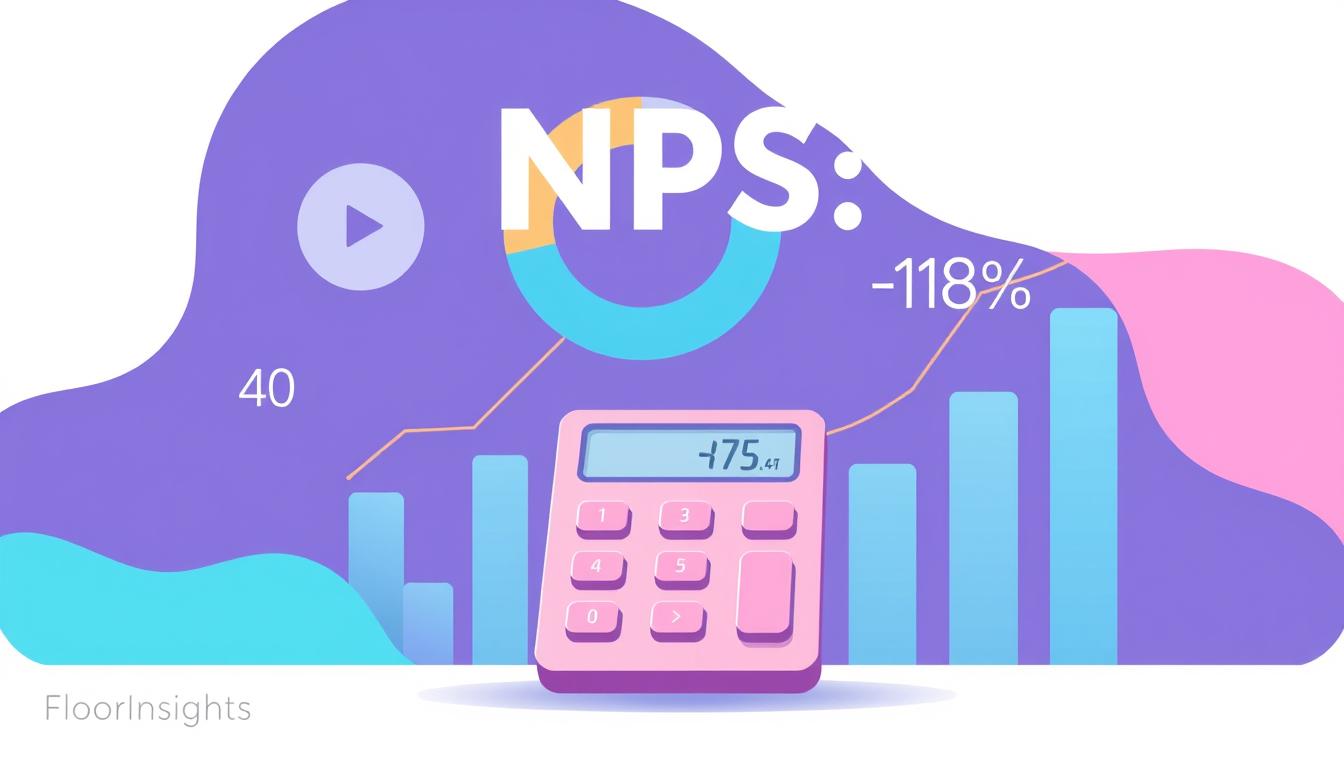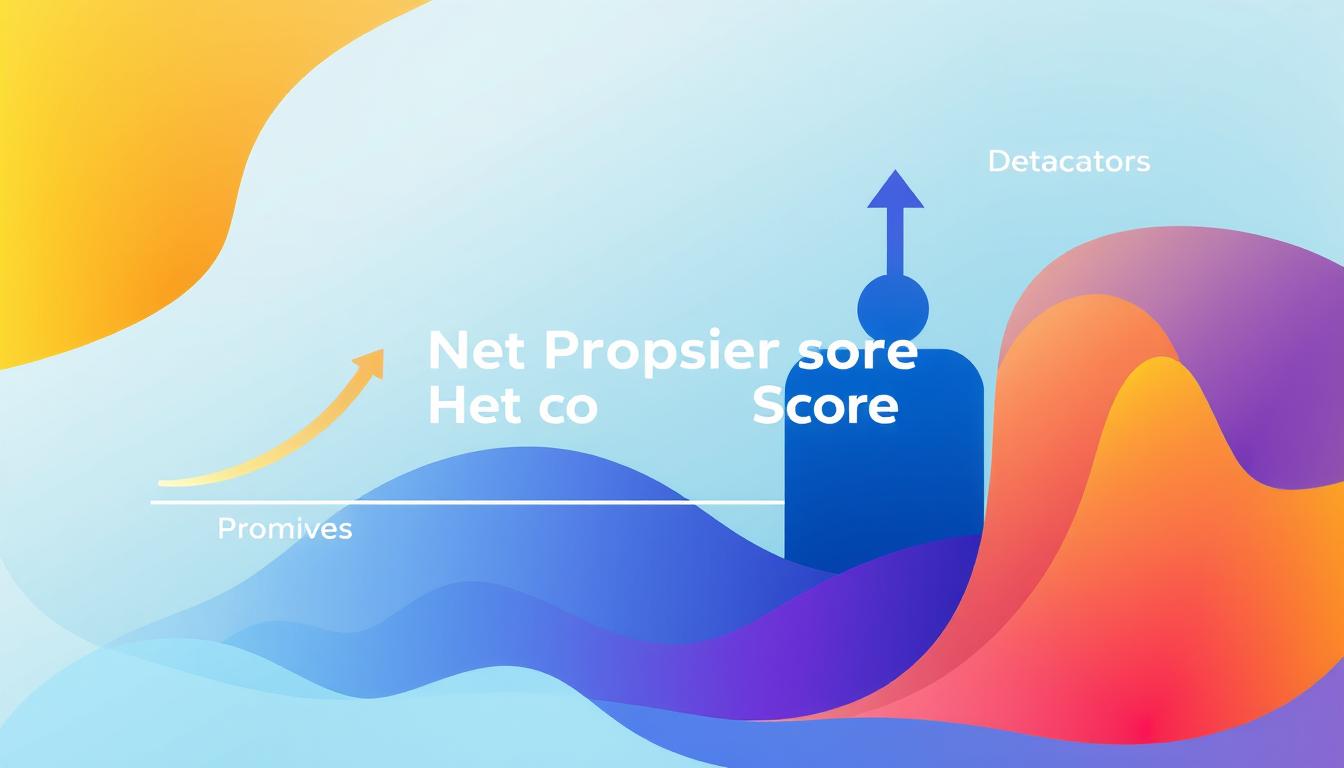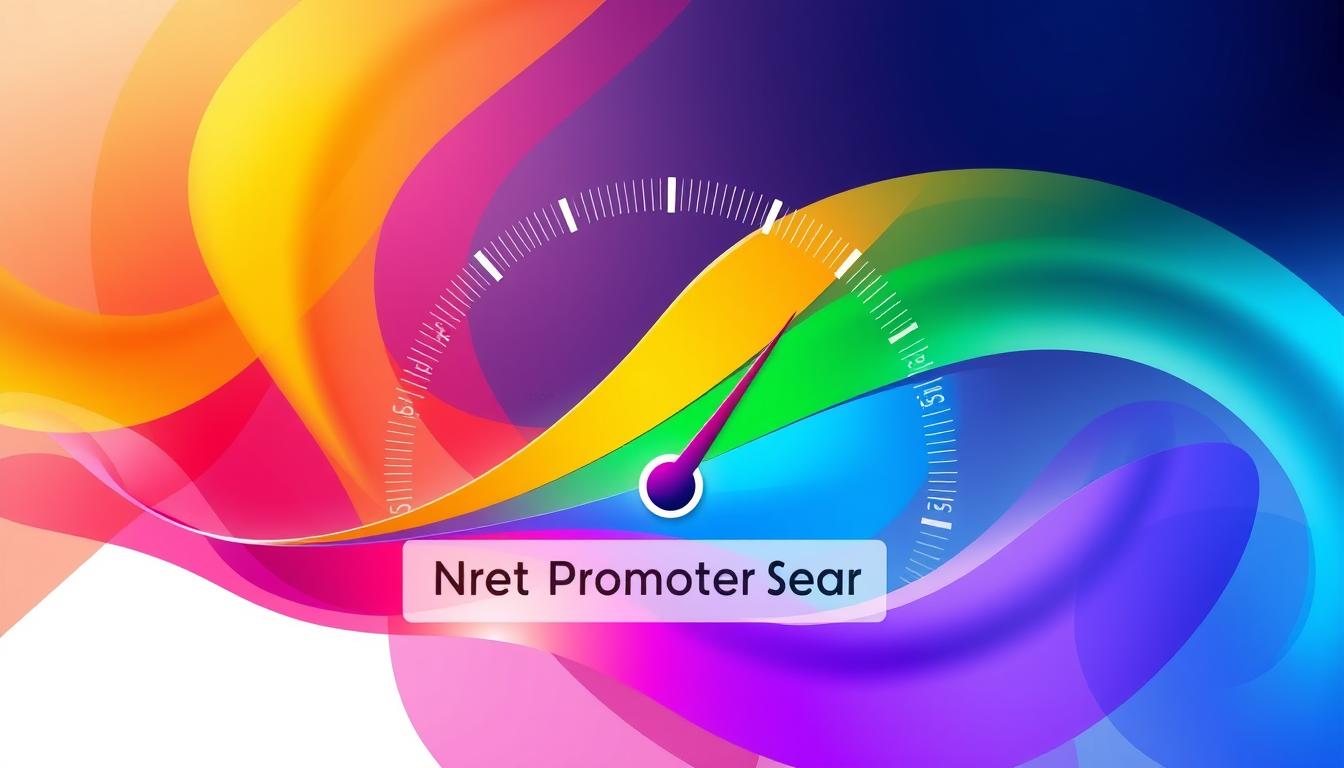In today’s fast-paced business landscape, the significance of the Net Promoter Score (NPS) cannot be overstated. As we move towards a future characterized by technological advancement, the role of automated data collection in NPS processes emerges as a game-changer. Automation not only enhances the speed and accuracy of collecting feedback but also empowers us to analyze insights in real-time. By leveraging an efficient NPS survey platform, we can significantly improve our understanding of customer sentiment and adapt our strategies accordingly. Embracing automation will allow us to streamline operations, ensuring that we remain responsive to the evolving needs of our customers.
Key Takeaways
- Automation transforms the NPS data collection process.
- Real-time insights enhance responsiveness to customer feedback.
- Efficient use of an NPS survey platform can streamline operations.
- Automated data collection improves speed and accuracy.
- Understanding customer sentiment is vital for strategic decisions.
The Importance of NPS in Business
NPS, or Net Promoter Score, plays a vital role in the contemporary business landscape. Understanding the importance of NPS enables us to assess customer loyalty and satisfaction effectively. This metric serves as a key performance indicator, providing businesses with insights into their reputation and customer experience.
A strong focus on NPS can directly influence our business strategy. By tracking this score, we can uncover areas needing improvement, ultimately driving customer retention and enhancing brand loyalty. In competitive markets, such as India, companies must adapt their strategies based on NPS findings to remain relevant.
Implementing NPS within our business framework allows us to identify and address pain points in the customer journey. This proactive approach fosters deeper connections with customers, resulting in increased loyalty. Understanding the dynamics between customer feedback and NPS will guide us in refining strategies that resonate with our target audience.
The importance of NPS extends beyond mere numbers. It reflects our commitment to fostering a customer-centric culture, which is essential in a fast-evolving marketplace. By prioritizing NPS in our operations, we can cultivate an environment where customer loyalty thrives.
| Key Insights | Impact on Business |
|---|---|
| Assessing Customer Loyalty | Allows identification of loyal customers and detractors |
| Driving Business Strategy | Feedback shapes future decisions and initiatives |
| Enhancing Brand Loyalty | Stronger connections lead to repeat business |
Understanding Automation in Data Collection
Automation in data collection represents a transformative shift within businesses, facilitating more efficient data processing and management. By utilizing advanced technologies, we can streamline our methods, reducing the burden of manual entry and minimizing errors associated with human intervention.
One of the primary benefits of automation is enhanced data accuracy. Automated systems capture and record information swiftly, ensuring that data reflects real-time conditions and metrics. Our reliance on software solutions can substantially decrease the mistakes often present in manual processes, leading to more reliable data sets.
The implementation of automation goes beyond simple data entry. Businesses can leverage various technologies, such as integrated software platforms that work seamlessly within existing infrastructures. This compatibility ensures that transitioning to automated systems is smooth, allowing us to reap the advantages of enhanced data accuracy without overhauling entire operational frameworks.
As we explore the landscape of automation, it becomes evident that the benefits of automation extend beyond mere efficiency gains. In addition to saving time, these systems can aggregate data from multiple sources, providing insights that would be challenging to achieve manually. This level of integration fosters deeper analysis and understanding of the information at our disposal.
How Automation Enhances NPS Surveys
In the realm of customer feedback, automation plays a pivotal role in enhancing NPS surveys. This transformation allows businesses to collect insights more effectively while minimizing the manual workload. We can leverage automated feedback collection to create a seamless experience for both our teams and customers.
Streamlining the Collection Process
By adopting automated systems, we can streamline the process of sending out surveys. This not only saves time but also ensures that our surveys reach a wider audience. Automated tools can segment customers based on various attributes, allowing for targeted surveys that increase engagement. Key strategies include:
- Schedule automatic survey dispatches at optimal times.
- Utilize multiple channels such as email, SMS, and app notifications for distribution.
- Implement follow-up reminders to encourage those who haven’t responded.
Improving Response Rates
Enhanced NPS surveys benefit from improved response rates through automation. By making the feedback process more accessible, we enable customers to provide input easily. This accessibility can be achieved through:
- Offering surveys in diverse formats such as short polls or detailed questionnaires.
- Integrating feedback options directly within customer interactions, such as after a purchase or service interaction.
- Analyzing data in real-time to adjust approach based on customer preferences.
We see how automation not only facilitates better feedback collection but enhances the overall effectiveness of our NPS strategies. The ability to gather customer insights effortlessly contributes substantially to improved understanding and service adjustments.
| Method | Benefit |
|---|---|
| Automated Sending | Saves time and effort, reaching more customers. |
| Multi-channel Feedback | Provides customers with various options, increasing engagement. |
| Real-time Adjustments | Allows us to adapt strategies based on immediate feedback. |
Future Trends in NPS Data Collection
As we look toward the future trends in NPS, the integration of AI in customer feedback processes stands out. This technology offers a transformative approach to understanding customer sentiments, allowing for the collection and analysis of data in ways that were previously unimaginable. By incorporating machine learning algorithms, businesses can gain a deeper understanding of customer preferences and behaviors.
Integration with AI and Machine Learning
The role of AI in customer feedback continues to expand, enabling companies to harness the power of predictive analytics. As we utilize advanced algorithms, patterns emerge from feedback that help businesses tailor their strategies. This results in more personalized experiences for customers. For instance, AI systems can analyze sentiment through natural language processing, efficiently categorizing feedback and highlighting areas for improvement, thus propelling future trends in NPS data collection.
Real-Time Data Analysis
The capability for real-time analysis of NPS data is crucial in today’s fast-paced business environment. Companies can now process feedback as it arrives, allowing swift decisions that align with customer expectations. Implementing these immediate insights means brands can engage more proactively with their clientele, addressing concerns before they escalate. Real-time data analysis not only enhances responsiveness but also fosters a culture of continuous improvement.
Net Promoter Score Measurement: A Shift Towards Automation
The landscape of customer feedback is evolving, emphasizing the role of NPS measurement automation. Businesses are increasingly adopting digital survey tools to streamline their feedback processes. This shift not only enhances efficiency but also drives data-driven decisions that can significantly impact overall business strategies.

With the utilization of automated methods, we simplify the collection of customer responses. Traditional methods can be time-consuming and resource-intensive, whereas digital tools provide real-time analytics and insights. The automation of NPS allows us to capture feedback at scale, making the process less laborious and more effective.
Furthermore, NPS measurement automation enhances measurement accuracy. Automated systems reduce human error, ensuring that data collected is reliable and consistent. This accuracy allows for a deeper understanding of customer loyalty over time, enabling businesses to adapt their strategies based on real insights rather than guesses.
In addition, we should consider the following advantages of using digital survey tools for NPS:
- Enhanced speed: Quickly distribute surveys and gather results.
- Wider reach: Engage a larger audience through various digital channels.
- Improved analysis: Automatic data processing leads to actionable insights.
In our pursuit of better insights and strategies, embracing NPS measurement automation positions us at the forefront of customer-centric business practices, allowing for informed decision-making driven by precise customer feedback.
| Feature | Manual Surveys | Automated Surveys |
|---|---|---|
| Speed of Collection | Slow | Fast |
| Cost Efficiency | High | Low |
| Data Accuracy | Variable | High |
| Audience Reach | Limited | Extensive |
Leveraging NPS Survey Platforms for Better Insights
Utilizing an effective NPS survey platform can significantly enhance our understanding of customer sentiment. Choosing the right NPS survey tool requires careful consideration of various criteria to ensure we gather actionable insights. We must focus on factors such as user-friendliness, integration capabilities, and analytical features provided by the selected NPS software.
Choosing the Right NPS Survey Tool
When selecting a suitable NPS survey tool, we should evaluate how well it meets our business needs. Key aspects to examine include:
- User-Friendly Interface: A straightforward design allows for easier navigation, which encourages participation.
- Integration Capabilities: Ensure the tool works seamlessly with existing software, enhancing data flow and usability.
- Analytics Features: Advanced analysis options are crucial for deriving meaningful insights from the feedback collected.
Features to Look for in Net Promoter Score Software
Effective NPS software should encompass various essential features to provide significant return on investment. These features include:
| Feature | Description |
|---|---|
| Real-Time Analytics | Allows us to view responses immediately, enabling swift decision-making. |
| Automation Capabilities | Automates survey distribution and follow-ups, saving time and resources. |
| Customizable Survey Options | Provides flexibility in designing surveys to align with our branding and specific requirements. |
The Role of Customer Feedback in Automatic NPS Systems
In today’s dynamic business landscape, maximizing the NPS impact relies heavily on effective customer feedback automation. This integration allows us to capture and analyze crucial customer insights, shaping our approaches to meeting client needs. Automated systems can facilitate real-time feedback loops, ensuring we gather data precisely when customers are most engaged.
We can adopt several strategies to encourage more comprehensive feedback from our customers:
- Utilizing various platforms to distribute surveys, such as email, social media, and in-app notifications.
- Incorporating engaging questions that resonate with customer experiences, prompting them to share valuable insights.
- Providing incentives for completing surveys, making the feedback process more rewarding for customers.
Understanding the nuances of these customer insights allows us to refine our practices continuously. Each response contributes to a bigger picture, influencing future automation developments and enhancing the accuracy of our NPS results. As we implement these systems, our commitment to listening to our customers will create a pathway to ongoing improvement.
Challenges of Automated NPS Data Collection
As we explore the evolving landscape of NPS data collection, we encounter several challenges of automation that require attention. Key among these is the integral issue of data quality in NPS, which directly affects the accuracy and reliability of collected responses. Automated systems, while efficient, can sometimes lead to inconsistencies that hinder effective data analysis.
Ensuring Data Quality
Mistakes, such as incorrect data entry or automated algorithms misunderstanding responses, can occur in an automated environment. This results in skewed NPS scores. Implementing rigorous validation techniques and regular audits of automated data collection processes becomes essential to uphold data quality in NPS. The commitment to continual assessments and adjustments allows organizations to maintain high standards for response accuracy.
Maintaining Human Touch
The reliance on automated methods raises concerns regarding the erosion of human interaction in surveys. While technology streamlines feedback collection, the absence of genuine human connection might deter customers from participating fully. Balancing automated processes with opportunities for personalized communication is vital. A thoughtful approach fosters trust and encourages candid responses, leading to actionable insights without sacrificing the essence of customer engagement.
Case Studies: Successful Automation in NPS
In exploring NPS automation case studies, we uncover significant implementations that showcase the transformative power of automated systems across various industries. Companies in India have led the charge, demonstrating firsthand the benefits of NPS automation in terms of operational efficiency and enhanced customer satisfaction.
For instance, a prominent e-commerce platform adopted automated NPS strategies, resulting in a staggering improvement in response rates. By integrating these systems, they achieved a 25% increase in customer feedback collection within the first quarter. Feedback analysis enabled management to swiftly identify pain points and enhance user experience, thereby fostering loyalty.
- Automated NPS systems allowed for real-time insights, leading to rapid adjustments in service offerings.
- With improved data collection, the company could make data-driven decisions, ultimately boosting its market share in a competitive environment.
Another example arises from a leading telecommunications provider that streamlined its NPS surveys through automation. By leveraging AI technology, they not only gathered responses efficiently but also enhanced customer engagement initiatives. This resulted in a significant reduction in the time taken to analyze feedback, allowing them to address customer concerns proactively.
| Company | Industry | Response Rate Increase | Time to Insight |
|---|---|---|---|
| E-Commerce Platform | Retail | 25% | 1 Month |
| Telecommunications Provider | Telecom | 30% | 2 Weeks |
These examples of automated NPS success illustrate that integrating automation not only simplifies the data collection process but also leads to more informed business decisions. Overall, as we review these implementations, it’s clear that the landscape of customer feedback is evolving, with automation paving the way for innovation and increased satisfaction among consumers.
Conclusion
In this article, we have explored how automation in business is poised to transform the landscape of Net Promoter Score measurement. As we discussed, the integration of advanced technologies like AI and machine learning is paving the way for future NPS trends that will significantly enhance the efficiency, accuracy, and responsiveness of data collection efforts. This evolution represents a pivotal shift in how we gather and analyze customer feedback, enabling businesses to make informed decisions that cater to their clientele.
It is clear that leveraging automation will not only streamline our processes but also improve the quality of insights derived from NPS data. By embracing these innovations, we position ourselves to better understand customer needs and preferences, thus fostering loyalty and long-term engagement. The Net Promoter Score evolution is not just about collecting data; it’s about making that data actionable and impactful for our business strategies.
As we look to the future, our preparations to adopt these automated solutions will undoubtedly define our competitive edge in the market. By staying attuned to future NPS trends and continually optimizing our methodologies, we enhance our ability to respond effectively to the ever-changing expectations of our customers, particularly in the dynamic business environment we face in India.
FAQ
What is a Net Promoter Score (NPS)?
The Net Promoter Score (NPS) is a key performance indicator (KPI) that measures customer loyalty and satisfaction by asking customers how likely they are to recommend a business to others. It serves as a valuable tool for assessing customer feedback and improving overall business strategies.
How can automation improve NPS data collection?
Automation enhances NPS data collection by streamlining processes, reducing manual effort, and improving data accuracy. Automated systems can quickly send surveys and gather responses, allowing businesses to analyze customer feedback in real-time and respond more effectively.
What are the benefits of using an NPS survey platform?
An NPS survey platform provides several benefits, including user-friendly survey design, integration with existing systems, automation of feedback collection, and the ability to analyze results quickly. These features help organizations gain valuable insights into customer loyalty.
How do we measure Net Promoter Score accurately?
Accurate measurement of Net Promoter Score involves conducting well-structured NPS surveys that capture customer sentiments. Utilizing digital survey tools and ensuring that surveys reach a representative sample of customers are crucial for obtaining reliable scores.
What features should we look for in net promoter score software?
When choosing net promoter score software, we recommend seeking features such as real-time analytics, automated feedback collection, customizable survey options, and integration capabilities with other business tools. These features contribute to a more effective NPS measurement process.
How does customer feedback impact NPS systems?
Customer feedback plays a critical role in NPS systems by informing businesses about customer satisfaction and sentiment. Integrating this feedback into business strategies helps drive improvements and enhances the overall customer experience.
What challenges does automated NPS data collection face?
Automated NPS data collection can face challenges such as ensuring data quality and maintaining a human touch in interactions. Balancing efficiency with personalized customer engagement is essential for fostering genuine relationships and higher response rates.
Can you provide examples of successful automation in NPS?
Related Posts
- Creating Products that Promote High NPS Scores – NPS and Product Development
- The Importance of Post-Purchase NPS Surveys – NPS and Customer Journey
- Timing is Everything: When to Send NPS Surveys
- How to Incorporate NPS Data into Business Strategy
- How Digital Tools Enhance NPS Data Collection and Analysis – NPS in Digital Transformation
- Measuring NPS Over Time: Trends and Seasonality
- Case Study: How NPS Increased Loyalty Program Participation – NPS and Loyalty Programs
- The Ethical Considerations of Collecting NPS Data – NPS Ethics and Data Privacy






